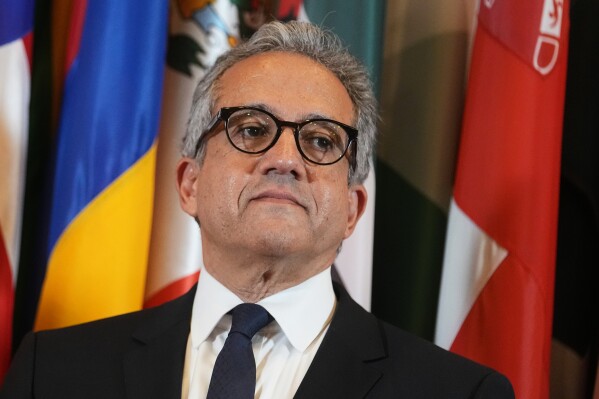UNESCO’s New Director-General

- 10 Oct 2025
In News:
The Executive Board of UNESCO (United Nations Educational, Scientific and Cultural Organization) has elected Egypt’s Khaled El-Enany as its new Director-General for a four-year term (2025–2029), succeeding Audrey Azoulay of France. His election marks a significant moment for African and Arab representation within the United Nations system.
About the Election Process
- Nomination: Candidates are nominated by member states and evaluated by UNESCO’s 58-member Executive Board.
- Voting: The Board conducts a secret ballot, requiring an absolute majority to select a nominee.
- Approval: The selected candidate’s name is then forwarded to the General Conference—comprising 194 member states—for formal confirmation.
About the Director-General’s Role
The Director-General serves as the chief executive officer and spokesperson of UNESCO, responsible for implementing the policies and decisions of the General Conference and Executive Board.
Key Functions
- Leadership & Administration:
- Oversees UNESCO’s global programmes across education, culture, science, and communication.
- Manages the World Heritage Sites framework and educational cooperation initiatives.
- Policy Implementation:Translates strategic resolutions of the General Conference into operational programmes.
- Global Representation:Acts as the face of UNESCO in international diplomacy, fostering partnerships for cultural and educational cooperation.
- Financial Stewardship:Mobilizes funding, particularly important after the U.S. withdrawal, which caused an 8% cut in UNESCO’s annual budget.
About UNESCO
- Founded: 1945
- Headquarters: Paris, France
- Membership: 194 member states
- Mandate: To promote peace, education, science, and cultural understanding through international collaboration.
UNESCO’s global initiatives include:
- The World Heritage Convention (1972)
- The Education for Sustainable Development (ESD) framework
- The Man and the Biosphere (MAB)Programme
- Promotion of freedom of expression and media pluralism
